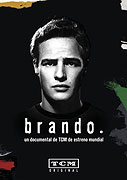
Forgatókönyvíró:
Mimi FreedmanSzereplők:
Marlon Brando, George Englund, John Turturro, Al Pacino, Martin Landau, Dennis Hopper, Johnny Depp, Karl Malden, Eli Wallach, Cloris Leachman, Jon Voight (több)Tartalmak(1)
Négy év telt el Marlon Brando, a színészlegenda, az aktivista és az örök különc halála óta, de életének sok részletét ma is homály fedi. Pályája során A vágy villamosától a Keresztapán át az Apokalipszis mostig „Marlon nyers, megdöbbentő, vibráló emberséget vitt mindenbe, amibe belefogott” – mondja róla Sean Penn. Ebben a teljes pályafutását átfogó dokumentumfilmben színészek (Johnny Depp, Al Pacino), rendezők (Bernardo Bertolucci, Arthur Penn, Martin Scorsese), barátok, barátnők és a gyerekei beszélnek Marlon Brandóról. Részleteket láthatunk a Haragban a világgalhoz készült próbafelvételeiből, és abból az amatőrfilmből, amit Montgomery Clifttel készítettek. A Brando azt a színészt mutatja meg nekünk, aki nem kért a tucatszerepekből, inkább olyan filmeket vállalt el, melyek valamilyen üzenetet hordoztak. Nem elég, hogy a liberális Hollywood hírességeihez hasonlóan támogatta a civil mozgalmakat, tett is a Fekete Párducok és az amerikai őslakos aktivisták ügyéért. A férfit, aki a method acting erejét megmutatta, és aki megváltoztatta Hollywoodot, talán sosem ismerjük meg teljesen, de valószínűleg ezt ő is így akarná. „Sokan próbálnak őszintén élni, de az ilyen emberek unalmasak – mondja Sean Penn. – Mások viszont még önmaguk elől is elrejtőznek. Marlon Brando is ez utóbbiak közé tartozott.” (Titanic Nemzetközi Filmfesztivál)
(több)Recenziók (1)
Brando was no saint (though he liked to stylise himself into a Jesus-like character), a fact that this extensive commemorative documentary does not try to hide. As expected, the greatest amount of spaced is dedicated to his key performances as an actor (A Streetcar Named Desire, On the Waterfront, The Godfather, Last Tango in Paris, Apocalypse Now) and the films in which he actually acted and wasn’t just THE Marlon Brando. With respect to the predominantly non-analytical concept, however, I found the tabloidish information about Brando, which I didn’t know from films, to be more enriching, particularly the information about Brando’s fight for the rights of indigenous Americans, fathering of children and development of islands in the Pacific Ocean. I take the last fifteen minutes, which could be called “Brando the Joker”, as the inevitable toll for the attempt to show truly every side of the famous actor (whose method was, in my opinion, too distinctive for younger actors to employ, as the documentary tries to suggest).
()